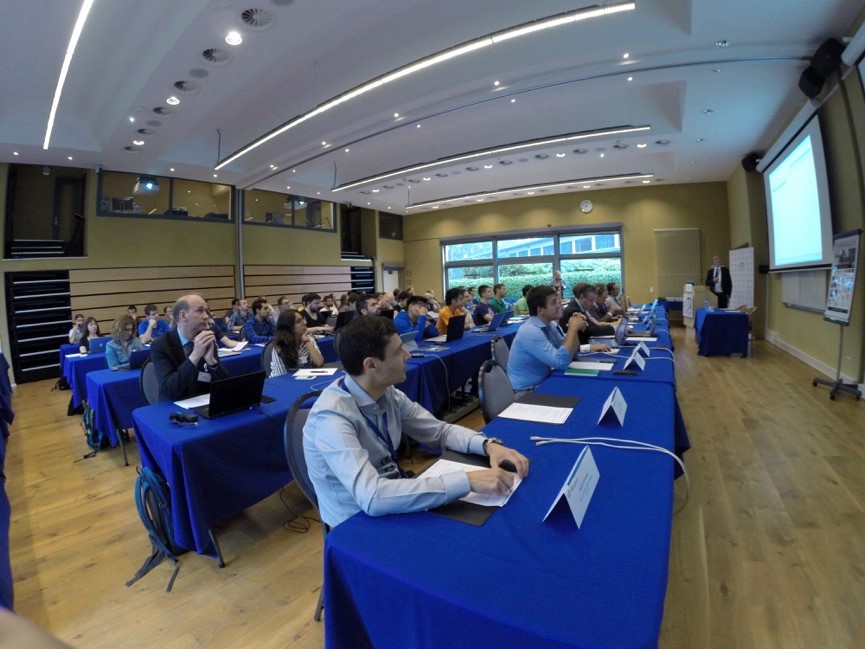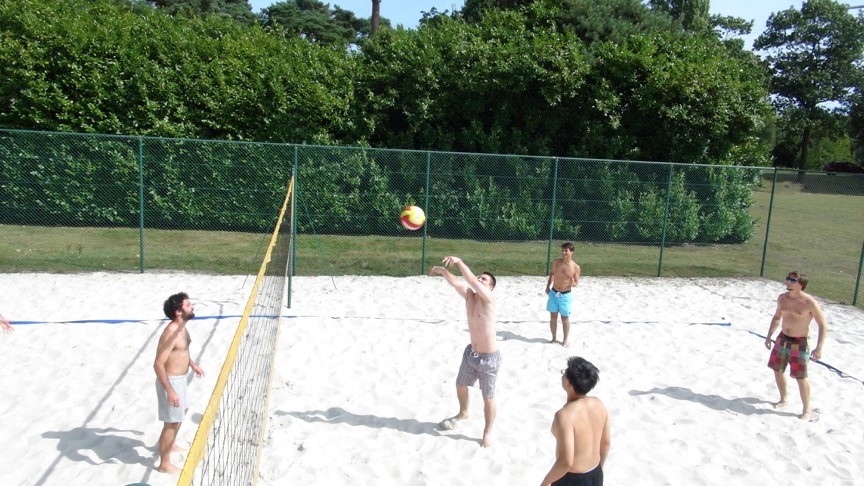The CERN School of Computing 2016
The CERN School of Computing (CSC) fosters the dissemination of knowledge and learning in the field of scientific computing. Its mission is to create a common culture in scientific computing among young scientists and engineers involved in particle physics and other sciences as a strategic direction to facilitate the development of large computing-oriented transnational projects. The CSC is composed of up to three schools per year, each one characterized by its own flavour and specific goals.
The Main School, the CSC, is held every year and lasts for two weeks in summer. It is a veritable “Summer University”, which offers both formal lectures and hands-on exercises. The practical part is an important component of the school, and may include projects carried out by groups of students. The supporting computing infrastructure is configured on the site of the school. Attendance usually ranges from 50 to 80 students. Upon successful completion of the CSC exam an official CERN School of Computing Diploma is delivered to the students and, thanks to the hosting universities, ETCS credits are recognized, six for the 2016 edition of the CSC.
In addition there is the Thematic School, tCSC, which is characterised by being shorter, smaller and focused on a specific technical “theme”. It lasts for one week and is dedicated to advanced lectures and practical exercises on a specific topic that can change from edition to edition. Students typically have either a computing or a science background, but with a strong interest in applications designed to solve demanding and sophisticated scientific computing problems.
The Inverted School, iCSC, is a place where “Students turn into lecturers”. This school involves former attendees of the tCSC and CSC as lecturers. This event lasts one to three days, is held at CERN and comprises only talks. In fact, several of the lecturers at the CSC have previously presented talks at the iCSC. Attendance to this event is open to anyone at CERN who is interested to attend.
This year the Main School was organised in Mol, Belgium at the SCK-CEN research centre and took place from August 28th to September 10th. Forty-nine students from twenty-five different countries attended the School.

The SCK-CEN “Lakehouse” where the restaurant and lecture room were located.
The scientific programme consisted of fifty-two hours of tuition organised in three tracks: Data Technologies, addressing the broad domain of data storage and management technologies, Physics Computing, covering tools and techniques for scientific software design and data analysis and Base Technologies, presenting a selection of advanced computing technologies especially relevant in the context of scientific computing.
Also this year SFT group contributed to the Base Technologies track with four hours of lectures and three hours of exercises covering the topic of Software Design in the Many-Core Era. This lecture series gave an introduction to the architecture of large parallel applications and treated the cornerstones of the design and development of parallel scientific software. Theoretical concepts such as implicit and explicit parallelism, task scheduling, thread safety and protection of resources have been discussed in depth also examining examples coming from High Energy Physics and High Performance Computing.
SFT is not only involved in the Main School but is also present at the Thematic School, where it is responsible for one third of the scientific program, and also plays a role at the iCSC, contributing to the mentoring of the student-lecturers.

A presentation at SCK-CEN. During the CSC, ex-cathedra lessons are always complemented by hands-on sessions.
However, the CSC is not only made of lectures and exercises but students are also given the opportunity to socialise and establish relationships that last for a lifetime. Exchange of ideas and points of view is encouraged with an outstanding social program that foresees many opportunities such as dinner outings and other activities. Among these activities, an optional sport programme is offered. It usually consists in two to three hours of sport during several afternoons. Often more than 90% of the students participate and the possibility to discover new sports or to improve new skills, through lessons given by school lecturers or by external instructors, is appreciated. The sport programme helps maintaining a healthy work-life balance offering additional opportunities for interactions between students, lecturers and organisers. This year students were given the possibility of canoeing, trekking, cycling and playing tennis, football, basketball, badminton and volley.

A beach volleyball game during an afternoon of sports
Preparation of the 2017 edition of the Main School has already started. It will be held in Madrid and the hosting institution is the Universidad Politécnica de Madrid (UPM). You are all invited to submit your application!
